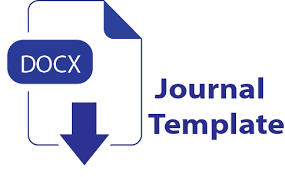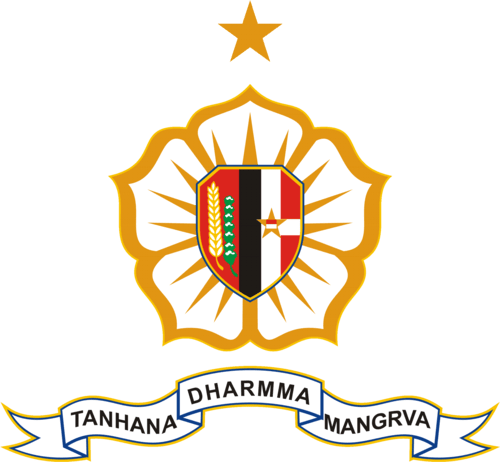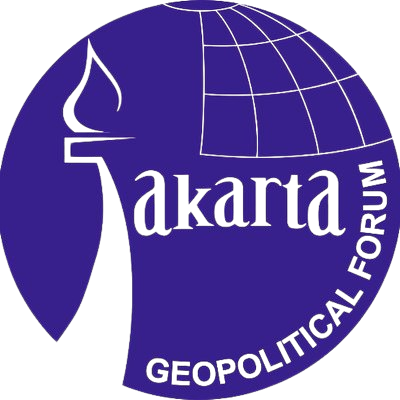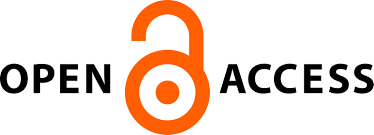Trigger Speech: GEOPOLITICS AND MARITIME WHOLE OF GOVERNMENT IN THE REGION
DOI:
https://doi.org/10.55960/jgf.v8i1.267Keywords:
ASEAN maritime trade growth, Global Maritime Fulcrum vision, Indo-Pacific maritime governance, Maritime cybersecurity threatsAbstract
The 8th Jakarta Geopolitical Forum (JGF) provided a strategic platform to elevate maritime issues within the international community (1). The forum reinforced Indonesia’s geopolitical relevance as a maritime nation navigating complex regional and global dynamics. Positioned between the Pacific and Indian Oceans, Indonesia continues to leverage the archipelagic geography to shape maritime governance and assert itself as a central maritime power (2,3).
With two-thirds of national territory consisting of ocean space, Indonesia's marine wealth, comprise of fisheries, hydrocarbons, and biodiversity, constitutes a cornerstone of national identity and economic development (4). A legacy as a seafaring nation further shapes the strategic vision to position Indonesia as a Global Maritime Fulcrum, consistent with the national motto Jalesveva Jayamahe (at sea we are victorious) (1). This vision aligns with efforts to secure shipping routes, improve inter-island connectivity, and maintain maritime order across vital sea lanes traversed by over 60,000 vessels annually.
Maritime trade underpins over 90% of global commerce, rendering maritime security and connectivity essential to international economic stability (5). With global trade projected to grow by 2.4% in 2023 and maintain an upward trend through 2028, the Indo-Pacific region stands at a decisive point (6). By 2030, two-thirds of the global middle class will reside in Asia, and ASEAN is poised to become the world’s fourth-largest economy. Trade across the ASEAN region may expand by $1.2 trillion over the next decade, with exports potentially growing nearly 90% by 2031. These projections highlight the urgency of strengthening maritime infrastructure, enhancing regulatory environments, and fostering financial and technological cooperation.
National policy initiatives for example, the National Logistics Ecosystem and the adoption of E-Government Technology aim to streamline trade, enhance port and customs efficiency, and integrate data systems (7). These reforms provide a rules-based framework conducive to stable and predictable maritime interactions. Emphasising the ocean as a global common, Indonesia adheres to the United Nations Convention on the Law of the Sea (UNCLOS), reinforcing the commitment to international law and multilateral maritime cooperation (8).
Mitigating maritime threats requires a coordinated and comprehensive approach (1). Key challenges include unresolved maritime disputes, armed robbery at sea, and the persistent problem of illegal, unreported, and unregulated (IUU) fishing (9). Digital transformation also introduces new threats, for example vulnerabilities in maritime cybersecurity, which demand immediate attention (10).
To reinforce maritime security and governance, efforts prioritise collaboration, trust-building, and the establishment of operational frameworks (1,11). These efforts include conducting joint exercises, enhancing real-time information sharing, and maintaining open and inclusive dialogue among stakeholders. Sustained cooperation builds the trust necessary for effective governance and resource protection across shared maritime domains. The sea acts as a conduit for connection, growth, and shared prosperity (12). The protection and sustainable use rely on international solidarity and consistent commitment to cooperation. Maritime governance, anchored in legal frameworks and practical cooperation, holds the key to future global welfare. The management of this critical domain will determine the resilience and inclusivity of the global maritime order in the decades ahead.
Downloads
Downloads
Published
Conference Proceedings Volume
Section
License
Copyright (c) 2024 Author's

This work is licensed under a Creative Commons Attribution-ShareAlike 4.0 International License.











